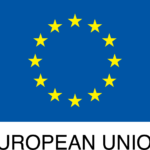
The majority (94%) of European organisations surveyed are working to become compliant with the CSRD (Corporate Sustainability Reporting Directive) by 2024, but their lack of decisive action is putting them at risk of running out of time, according to a second annual report by Workiva Inc. (NYSE:WK), the world’s leading cloud platform for assured integrated reporting. Furthermore, as reporting teams continue to accept and absorb an ever-increasing workload, they are underestimating the volume of work that lies ahead of the CSRD deadline.
CSRD influence on annual reporting
According to the Workiva report, “Annual Reporting Barometer 2023: Facing up to the CSRD,” surveying more than 500 finance leaders across Europe, 59 percent of respondents that aren’t even required to comply with the CSRD are still planning on doing so entirely voluntarily. The impact of the CSRD is clearly being felt, with more than three quarters (77%) of businesses surveyed revealing that ESG now has a moderate or major influence over their annual reporting strategies. For 73 percent of respondents in the DACH region and 67 percent in the UK and Ireland (UKI), ESG now has a moderate or major influence.
Companies underestimate the work ahead
While European organisations are driving toward change, with 43 percent of respondents planning to spend about the same amount of time as last year on financial transformation over the next 12 months, finance teams find themselves persistently accepting and absorbing an ever-increasing workload, indicating a frustratingly slow pace of progress. Over one third (37%) of respondents admitted to feeling overwhelmed and exceeding their capacity during the previous reporting period. In the UKI, companies felt the most pressure, with 60 percent being over capacity. It comes as no surprise that 41 percent asked for more time during next year’s reporting period.
“The CSRD mandate is already having a significant impact on the reporting landscape,” said Erik Saito, senior vice president and general manager of EMEA at Workiva. “Many reporting teams are at or near capacity and will be challenged by the workload pressure of additional CSRD reporting requirements—including additional disclosure, auditor assurance, and XBRL tagging—which will drive many to leverage new technology solutions. Workiva has the ability to help companies meet these complex regulatory requirements and reduce the chaos surrounding reporting.”
Collaboration is in the spotlight
Despite the CSRD mandate requiring companies to integrate both financial and sustainability information into their annual reports, only 10 percent of those surveyed are currently working to improve collaboration between finance and sustainability. Similarly, only 10 percent are actively working on improving collaboration between finance and risk, while a mere six percent are focused on integrating finance, sustainability, and risk. UKI companies were slightly ahead of Europe, at 12 percent—despite not necessarily needing to comply with the CSRD—while DACH lags further behind, at eight percent. This indicates that, while improvements are being made, it’s not clear whether existing plans to optimise collaboration between finance, sustainability, and risk to meet CSRD demands are going far enough.
“There is a clear lack of in-depth understanding when it comes to the requirements of integrated reporting—particularly in regard to CSRD compliance and the timelines needed to establish, test and optimise a truly cross-functional reporting structure,” continued Saito. “Organisations simply won’t be able to approach CSRD compliance with a ‘trial-and-error’ approach; the demands are far more complex than anything that has come before—and will only continue to increase.”
Optimise processes with technology
With the need to integrate finance and sustainability, organisations need to rethink their existing processes and develop a roadmap for incorporating both their financial and sustainability (non-financial) data with audit and controls into their reporting process. Indeed, finance reporting teams may be accepting of current workloads, but if teams are working with largely manual processes, they will struggle to absorb the shock of the CSRD. Forty-six percent of respondents are actively integrating or have already integrated tech into their reporting processes, with the UKI and DACH ahead of Europe in this area, at 52 percent and 50 percent respectively.
“The CSRD is a north star for organisations and is changing perceptions surrounding annual reporting—but companies are unprepared and are not moving quickly enough to meet new demands,” concluded Saito. “European companies may be ahead of the curve in terms of incorporating ESG into annual reporting strategies, however this is often because they have to be, rather than because they are genuinely in control. Businesses must prioritise cost-effective, efficient solutions as they work towards optimising their processes.”
About the survey
Workiva commissioned an independent survey, undertaken by Opinium Research, of 509 finance leaders who are responsible for corporate reporting in publicly listed companies, the majority with $50m+ annual turnover.
Respondents were surveyed between 13 March – 14 April 2023, and resided in 14 European markets, including UK, Ireland, Spain, Germany, Austria, Switzerland, France, Denmark, Norway, Sweden, Finland, Belgium, Netherlands, and Luxembourg.
To download the full report, please click here.



